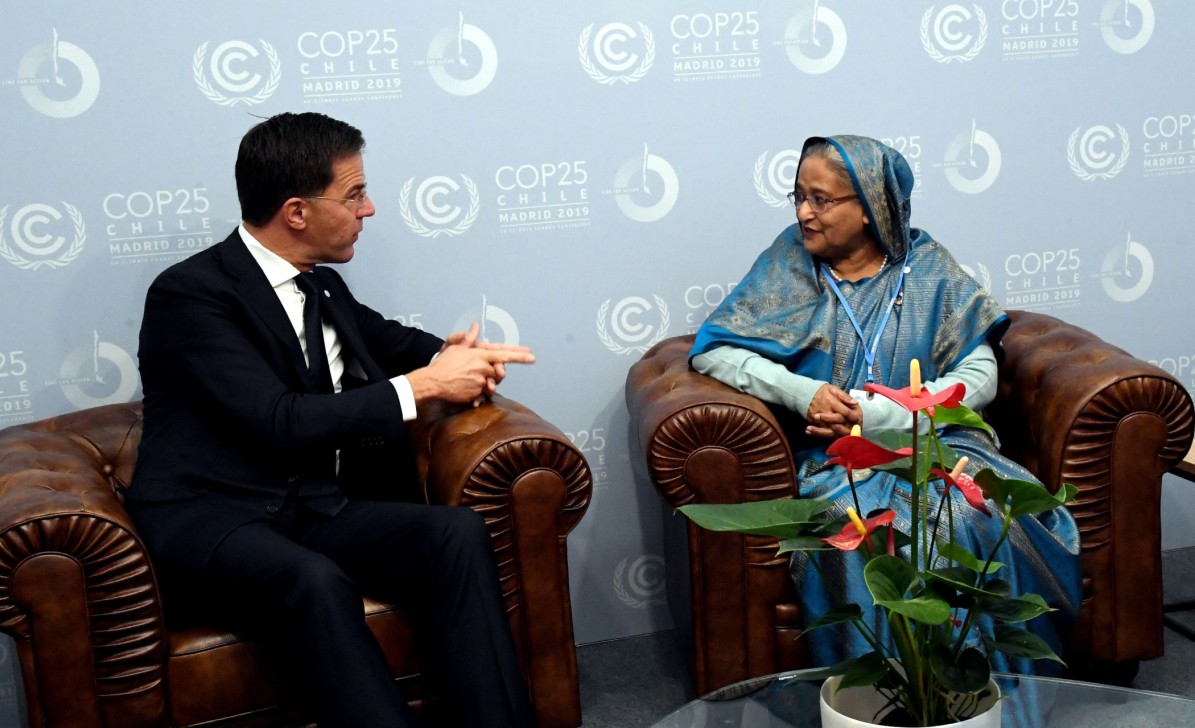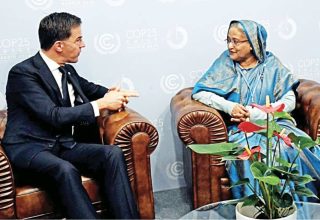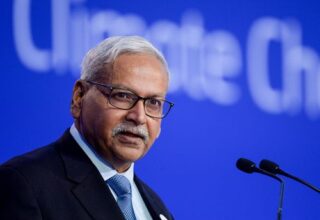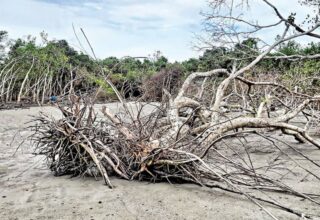
The 25th annual Conference of the Parties (COP25) of the United Nations Framework Convention on Climate Change (UNFCCC) opened in Madrid, Spain on Monday with a high-level event of the Climate Vulnerable Forum (CVF). There, in the presence of UN Secretary-General Antonio Guterres, the current chair of the CVF, President Hilda Heine of the Marshall Islands, announced that she would like Prime Minister Sheikh Hasina of Bangladesh to take over as chair of the forum from 2020.
Sheikh Hasina, who was also present at the event in Madrid, accepted the offer and she will chair both the CVF, which now consists of leaders of over 50 vulnerable developing countries, and the V20, a group of finance ministers from the CVF countries, from 2020.
This is the second time that she will be the chair of the CVF. Being asked to be the chair again is a great honour indeed.
Another important part of the high-level event was the unexpected arrival of Nancy Pelosi, the Speaker of the House of Representatives of the United States Congress, along with over 20 of her fellow Congressional representatives, who gave an inspiring speech immediately after Prime Minister Sheikh Hasina where she expressed solidarity of the US House of Representatives with Bangladesh and other vulnerable countries.
This gave a very strong and positive impetus for the next two weeks of negotiations at the COP25 in Madrid. Over the two weeks, there will be important decisions to be negotiated on a number of issues, of which the most contentious one is the issue of “loss and damage” where the vulnerable developing countries will be demanding that countries agree to start raising funds to compensate the victims of climate change for the loss and damage they are suffering already.
The developed countries have, until now, pushed back against the notion of compensation, to the extent that even the word itself is taboo! However, there are two important factors that give us hope that we can finally make a breakthrough here in Madrid.
The first factor is the undeniable scientific evidence that “loss and damage” due to human-induced climate change is now clearly attributable. This is a significant scientific breakthrough. The second factor is that national parliaments around the world, such as the British Parliament, and more recently the European Parliament, have made important declarations to recognise that the climate change problem of yesterday has become the “climate emergency” of today.
This is a very significant factor as it means that British and European negotiators in Madrid now must put their money where their respective parliament’s mouth is, and support the vulnerable developing countries’ demands for funding loss and damage.
Failure to do so will mean that governments don’t take their own parliaments seriously at all.
Finally, from the vulnerable countries’ side, the four of the most vulnerable groups—namely, the Least Developed Countries (LDC), Africa, Latin America and Small Islands—joined forces at a pre-COP workshop which I was asked to facilitate, to come with common demands at COP25. These four groups together comprise more than a hundred countries, which makes them a majority of the 195 countries in the UNFCCC, and they are also the countries with the greatest moral authority to talk about the effects of climate change as they have emitted a very small amount of greenhouse gases globally but are suffering the most.
Hence, COP25 in Madrid will prove to either show that the UNFCCC can indeed rise to the challenge of the climate emergency, or it will fail and become redundant as a global decision-making body.
I will be reporting back on the state of play in Madrid over the next two weeks.
Originally this article was published on December 04, 2019 at Daily Star. The author Dr. Saleemul Huq is the director of the International Centre for Climate Change and Development (ICCCAD) at the Independent University, Bangladesh (IUB).
Email: saleemul.huq@icccad.net






